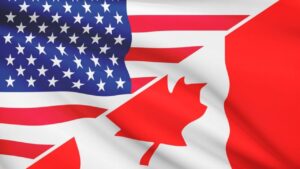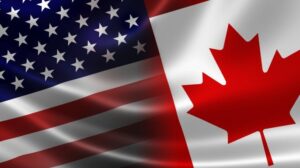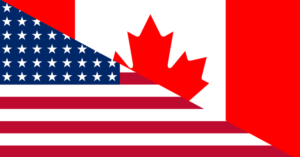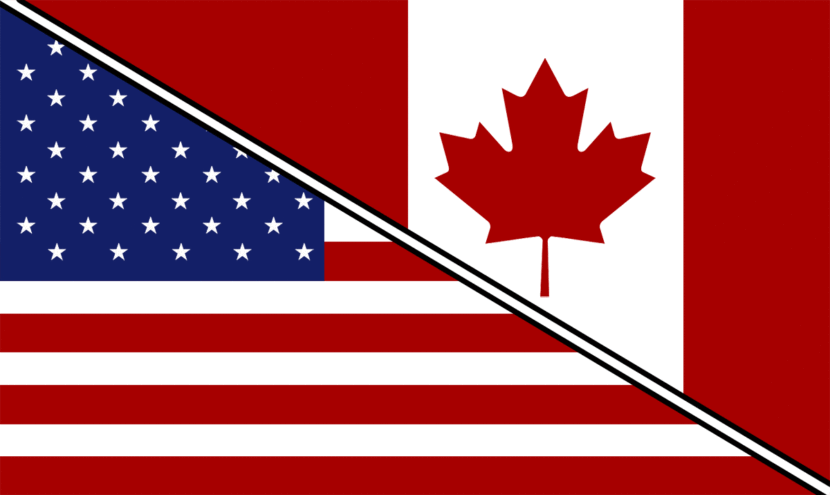Immigration to Canada for US Citizens

Immigration to Canada for U.S. Citizens
Introduction
Canada and the United States share not only the world’s longest undefended border but also close economic, cultural, and historical ties. For many Americans, Canada is an appealing destination to visit, study, work, retire, or permanently relocate. With a high standard of living, progressive social policies, and a diverse population, Canada offers a quality of life that’s both familiar and refreshingly different from that of the U.S.
This article is a comprehensive guide to the immigration and visa options available to American citizens interested in making Canada their temporary or permanent home. Whether you're pursuing educational opportunities, looking for work, or planning to move permanently, this guide provides all the key information you need to get started.
1. Visiting Canada as a U.S. Citizen
1.1 Visa-Free Travel: Immigration to Canada for US Citizens
U.S. citizens do not need a visa to visit Canada for tourism, business, or short-term visits.
When entering Canada, you must:
-
Show a valid U.S. passport
-
Demonstrate the purpose of your visit (e.g., tourism, family visit)
-
Prove you have enough funds for your stay
-
Be in good health and have no criminal convictions
Note: While a visa is not required, entry is always at the discretion of Canadian Border Services Agency (CBSA) officers.
2. Studying in Canada
2.1 Why Study in Canada?
Best Quality and Kind People.
2.2 Study Permit Requirements
If your program is longer than six months, you must apply for a study permit.
Eligibility criteria:
-
Valid passport
-
No criminal record (may require a police certificate)
-
Medical exam (if applicable)
- Funds
- Letter of Acceptance
2.3 Tuition and Costs: Immigration to Canada for US Citizens
Tuition for international students ranges from CAD $15,000 to $35,000 per year. U.S. students may also be eligible for scholarships and financial aid from Canadian universities.
2.4 Work While Studying
With a valid study permit, U.S. students can:
-
Work full-time during scheduled breaks

2.5 Post-Graduation Work Permit (PGWP)
Graduates from eligible institutions can apply for a Post-Graduation Work Permit, valid for up to three years, allowing them to work anywhere in Canada and gain experience that can be used toward permanent residency.
3. Working in Canada
3.1 Temporary Work Permits
U.S. citizens can work in Canada temporarily through:
-
Employer-Specific Work Permits: Require a job offer and sometimes an LMIA (Labour Market Impact Assessment)
-
Open Work Permits: Allow you to work for any employer but are usually granted under specific conditions (e.g., spousal sponsorship, post-grad permits)
3.2 NAFTA/USMCA Work Permits
Under the United States-Mexico-Canada Agreement (USMCA)—formerly NAFTA—U.S. professionals can apply for a CUSMA Professional Work Permit (no LMIA required).
Eligibility:
-
U.S. citizen
-
Profession must be listed under USMCA (e.g., engineers, accountants, scientists)
-
Job offer from a Canadian employer
-
Qualifications in the profession
Permits are usually valid for up to three years and renewable.
4. Permanent Residency (PR): Immigration to Canada for US Citizens
4.1 Express Entry
Express Entry is the main system for skilled workers. U.S. citizens who meet eligibility criteria can create a profile and receive a Comprehensive Ranking System (CRS) score based on:
-
Age
-
Education
-
Language proficiency
-
Work experience
-
Adaptability
If you meet the cutoff in one of the frequent draws, you’ll receive an Invitation to Apply (ITA) for PR.
Programs under Express Entry:
-
Federal Skilled Worker Program (FSWP)
-
Federal Skilled Trades Program (FSTP)
-
Canadian Experience Class (CEC)
4.2 Language Testing
Even as native English speakers, U.S. citizens must take a standardized English test such as:
-
IELTS General Training
-
CELPIP-General
Results significantly affect CRS scores.

4.3 Educational Credential Assessment (ECA): Immigration to Canada for US Citizens
American degrees and diplomas must be evaluated by an approved agency (e.g., WES Canada) to assess equivalency in the Canadian system.
5. Provincial Nominee Programs (PNP)
Each province in Canada has its own immigration streams to address regional labor needs. With a valid job offer or specific skills, U.S. citizens can apply for nomination under a Provincial Nominee Program, which can be used to boost an Express Entry profile.
Popular PNPs include:
-
Ontario Immigrant Nominee Program (OINP)
-
British Columbia PNP
-
Alberta Advantage Immigration Program
-
Nova Scotia Nominee Program (NSNP)
6. Family Sponsorship
Canadian citizens and permanent residents can sponsor their U.S. citizen family members for PR.
6.1 Who Can Be Sponsored?
-
Spouses, common-law or conjugal partners
-
Dependent children
-
Parents and grandparents (through PGP or super visa)
6.2 Spousal Sponsorship: Immigration to Canada for US Citizens
Spouses can be sponsored through:
-
Inland sponsorship (if already in Canada)
-
Outland sponsorship (if living outside Canada)
Inland applicants may qualify for an Open Work Permit while the sponsorship application is in progress.
7. Business Immigration: Immigration to Canada for US Citizens
7.1 Start-Up Visa Program
For American entrepreneurs with an innovative business idea supported by a Canadian designated organization (venture capital fund, angel investor, or incubator).
Requirements: Immigration to Canada for US Citizens
-
Qualifying business
-
Commitment certificate from investor/incubator
-
CLB 5 in English/French
-
Sufficient settlement funds
7.2 Provincial Entrepreneur Streams
Many provinces offer business immigration programs for investors or business owners. They typically require:
-
Significant net worth (e.g., CAD $300,000+)
-
Investment capital
-
Business management experience
-
Job creation plan

8. Retiring in Canada: Immigration to Canada for US Citizens
-
Visit Canada for up to six months at a time without a visa
-
Qualify for PR through family sponsorship or other programs
While property ownership does not provide residency rights, many Americans buy homes in Canada for part-time use.
9. Health Insurance and Public Services
9.1 Healthcare Access: Immigration to Canada for US Citizens
Canada’s universal healthcare system is available only to:
-
Citizens
-
Permanent residents
-
Some temporary workers and students
Visitors must purchase private travel health insurance. Some provinces have waiting periods before newcomers can access public health coverage.
9.2 Social Services
Permanent residents have access to:
-
Free K-12 education
-
Subsidized post-secondary education
-
Public healthcare
-
Employment Insurance
-
Pension plans (if they’ve worked in Canada)
10. Canadian Citizenship for U.S. Citizens: Immigration to Canada for US Citizens
After becoming a permanent resident, Americans may apply for Canadian citizenship once they’ve:
-
Lived in Canada for 1,095 days (3 years) out of the last 5 years
-
Filed taxes
-
Passed the citizenship test
-
Met language requirements (CLB 4 or higher in English or French)
10.1 Dual Citizenship: Immigration to Canada for US Citizens
Both Canada and the U.S. allow dual citizenship, so U.S. citizens can retain their American nationality while becoming Canadian citizens.
11. Cultural Integration and Lifestyle
Moving to Canada as an American involves minimal cultural adjustment:
-
English is widely spoken (French is co-official)
-
Similar legal systems, infrastructure, and institutions
-
Familiar brands and retailers
Major cities like Toronto, Vancouver, Calgary, and Montreal offer diverse communities, world-class services, and American-style comforts—alongside distinct Canadian charm.
12. Taxes and Financial Considerations: Immigration to Canada for US Citizens
U.S. citizens must file annual tax returns with the IRS regardless of where they live. Canada also has a comprehensive tax system.
Canada-U.S. Tax Treaty helps avoid double taxation, but you may need professional advice to:
-
File cross-border tax returns
-
Handle investments, pensions, and property
-
Report foreign income and bank accounts (FBAR, FATCA)
Conclusion
For U.S. citizens, Canada is a welcoming, prosperous, and highly accessible country in which to visit, study, work, or live permanently. With strong immigration programs, multiple work and study options, and an excellent quality of life, the Canadian dream is well within reach.
Whether you're moving for love, education, career, or lifestyle, understanding the legal pathways and requirements is the first step. By planning your move, securing the right documents, and meeting eligibility standards, you can make your transition to Canada smooth and successful.
In case, if you need help with Immigration to Canada for US Citizens, please fill in application below or contact us directly.

